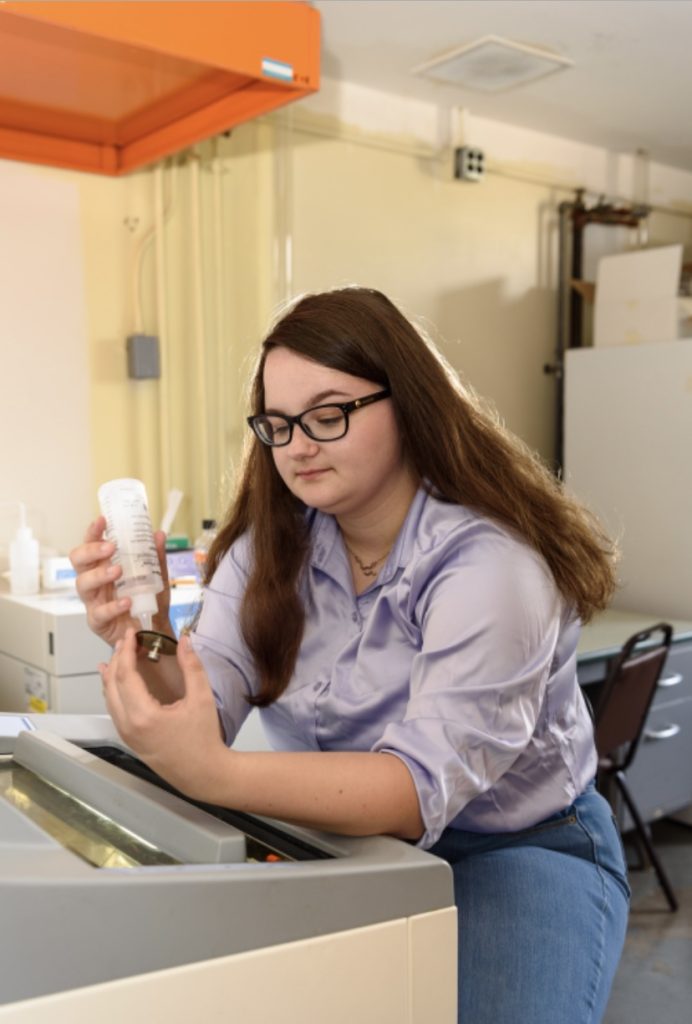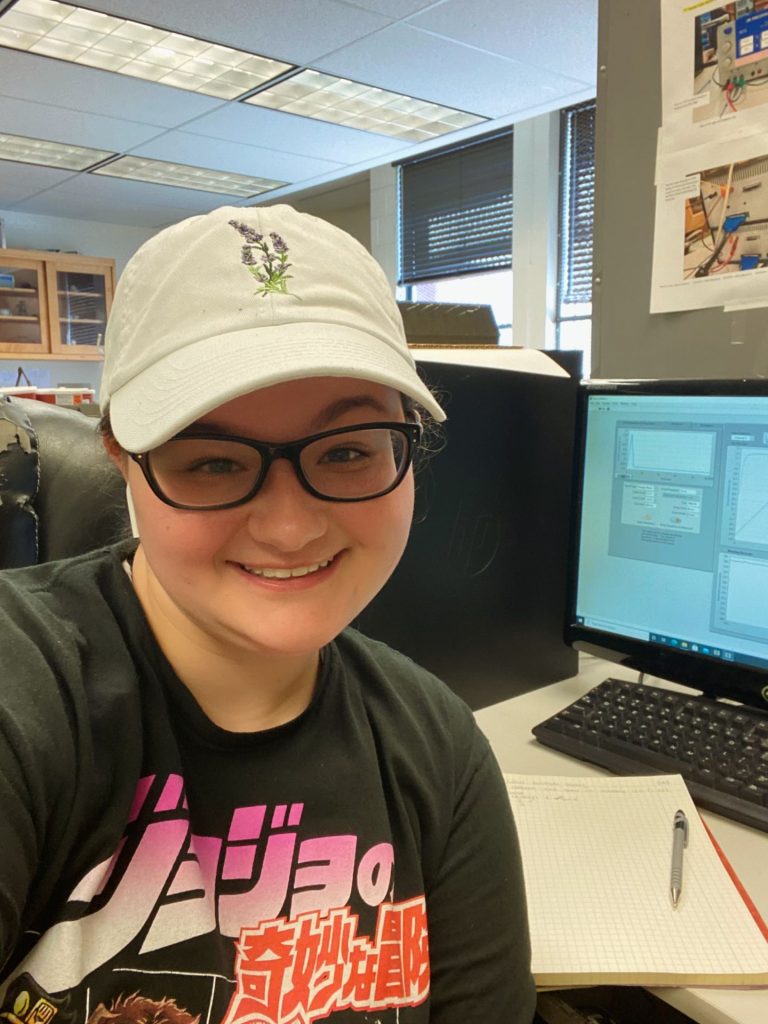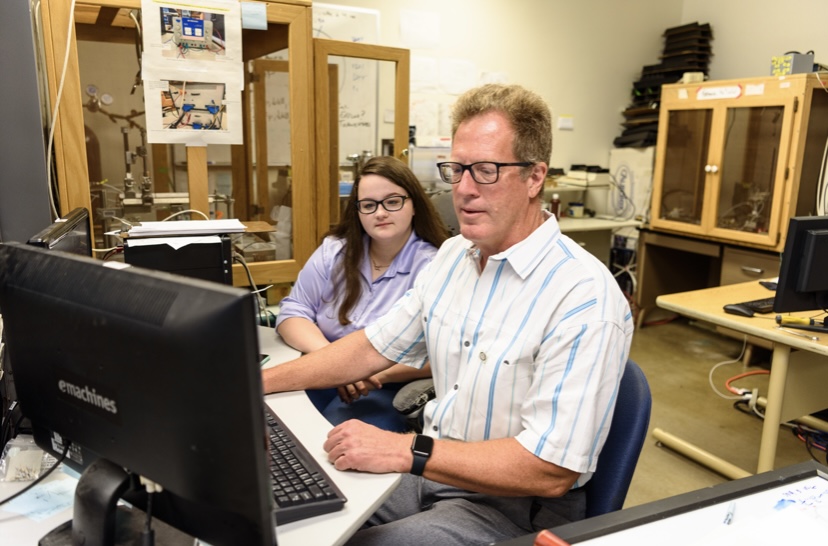The Graduate School has selected Rebecca Chicosky as its February GradBird Scholar recipient. GradBird Scholar is an initiative to recognize graduate students for their scholarly endeavors at Illinois State University.
Chicosky is from Mascoutah and received her B.S. in biopsychology at McKendree University in 2020. Currently, she is working to complete her Master of Science in biological sciences – neuroscience and physiology. Her thesis focuses on trying to figure out what amphetamine is doing through dopamine. Chicosky can often be found in her lab in Felmley Hall, running studies and analyzing her data.
When she’s not working in the lab, Chicosky enjoys spending her time with friends playing video games and board games. She also loves to travel to new places and experience new things. This past May she went to California to visit Monterey and San Francisco. A fun fact about Chicosky is that she can play clarinet, ukulele, piano, and ocarina – although not quite on the professional level.
What is your favorite part of the biological sciences program here at Illinois State?
My favorite part is how vast neuroscience really is. There are so many unanswered questions even just within my narrow area of research. Why do some people respond to one type of medication but not another? How do neurons respond to drugs? Do they respond differently? Luckily, I get to answer some of these questions using some state-of-the-art technology that allows us to expand what we do know and tackle some of these questions in the brain. Aside from that, I also really love that I get to teach and work with students and get them to think about these questions.
Do you work with a specific faculty/staff member to help with your research?
My advisor Dr. Paul Garris has been such an incredible advisor through my research process. Not only is he a brilliant mind, but also one of the humblest people I know. He has never made me feel less than for not knowing something in this field and has always had my back. It truly has been an honor working with him.
Can you explain your research and its importance within your field?
My research looks at how amphetamine affects dopamine neurons in the brain. Amphetamine is a psychostimulant which speeds up messages that the brain sends the body and are used in medication, like Adderall for ADHD. However, amphetamine is highly addictive and, unfortunately, we don’t really know how it works in the brain. Because of this, we cannot sort out the therapy from the addiction. However, the answer lies through dopamine, which is the chemical that drives us to learn. We know that when you take a drug, like amphetamine, you increase the amount of dopamine in the part of the brain that we learn in. However, we do not know whether or not this is consistent in that area.
To tackle this question, we use specialized sensors that have multiple recording sites that detect information about dopamine before and after I administer amphetamine to a rat. We can then look at how amphetamine affects dopamine at different places at the same time. This technique has never been done before to investigate amphetamine and with it, we can truly look at if the brain is acting the same throughout that learning area. By looking at that, we get a better picture of how amphetamine is acting in the brain as a whole, which hopefully can lead us to separate therapy and addiction down the line.
Why do you enjoy researching this topic and what more do you hope to learn about it?
I enjoy researching this topic because I am very passionate about mental health advocacy. That includes understanding how the drugs that are used to treat different mental disorders (like ADHD), work in the brain. It is really mind-blowing to me that although we prescribe these drugs, we don’t really know how they work. I hope to tackle some of these questions and get a clearer view, which will then down the line make better and safer medication.
What do you hope further research about this topic will do to benefit the greater of society?
If we can understand what amphetamine is doing, we can make better, safer drugs. Additionally, this research is enhanced by this new technology that look at multiple areas at once. Since this has not been done before, there is a lot of room for growth within neuroscience to utilize these as tools. For instance, these sensors can be used to look at other drugs, like cocaine, methamphetamine, and alcohol. Not only these, but these sensors have the potential to be adapted to look at other chemicals, like serotonin.
Would you like to highlight anything else about your research or promote anything specific you are involved in?
This year, I am the membership chair of Phi Sigma Biological Honor Society. We really love to support our students through funding and social events. If you are interested in biological research or have a passion for biology, Phi Sigma wants to support you and your endeavors.





